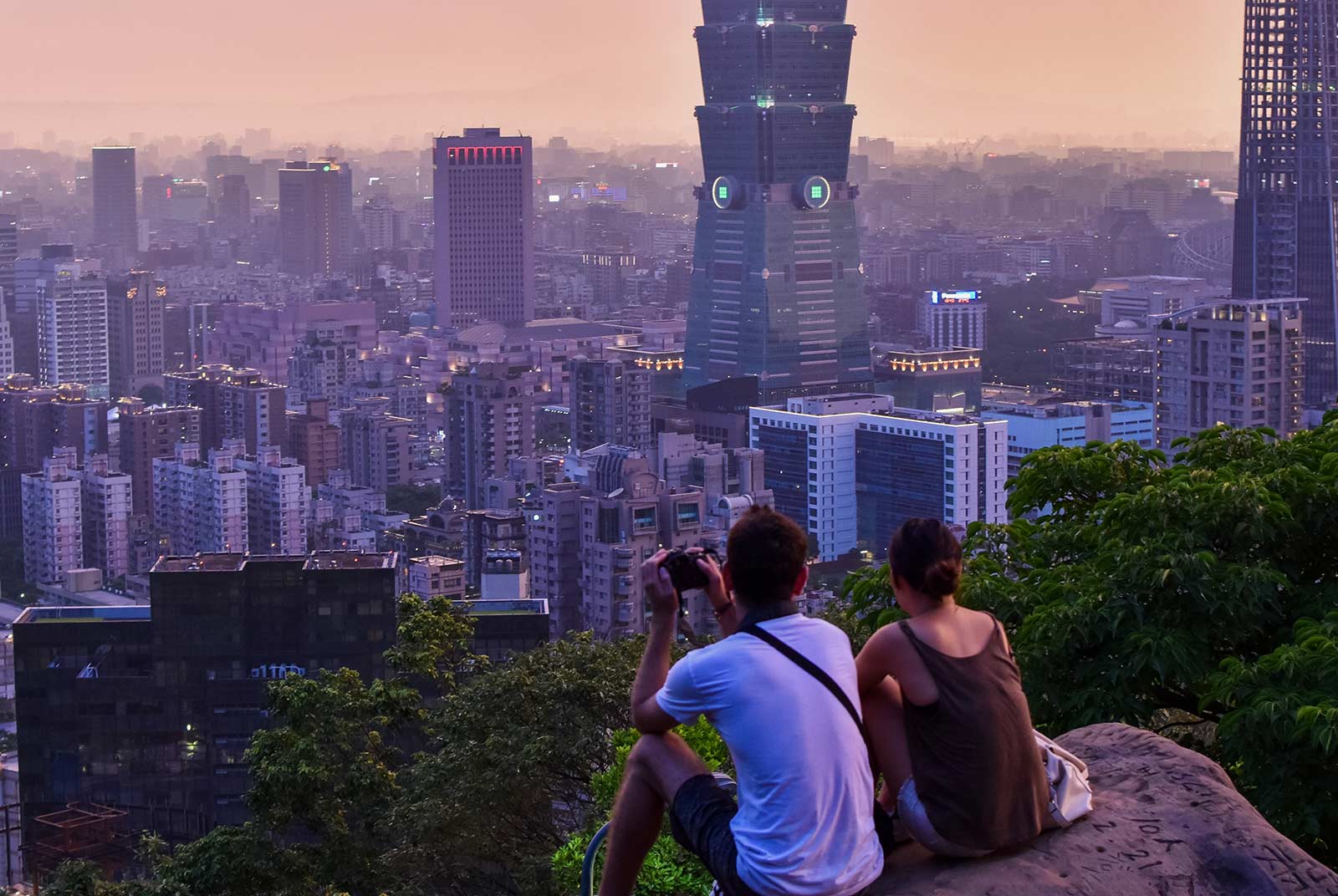Golden Service Champion
EVA Air Aims High with 'Taiwanese Quality'

Flat-lying beds, Bvlgari overnight kits, premium steak, lobster feasts… EVA Air targets the top of the pyramid, leapfrogging Singapore Airlines to become the king of airway service.
Views
EVA Air Aims High with 'Taiwanese Quality'
By Yueh-lin MaFrom CommonWealth Magazine (vol. 501 )
It is 7:00 a.m. on a Saturday morning, and EVA Air president K.W. Chang appears at the Taoyuan International Airport hangar. A fully certified Boeing 777-300ER captain, he prepares for a flight to Beijing as the first officer.
"I'm going for full captain qualifications," chuckles Chang, who took over operation of the company in 2010. He flies whenever the opportunity arises, to advance his certifications in the cockpit.
EVA Air has performed superbly under his guidance. In CommonWealth Magazine's 2012 Golden Service Awards survey, EVA Air trumped Singapore Airlines – frequently heralded as "the world's best airline" – to score first place in the airline category.
K.W. Chang has never made his ambition to supplant Singapore Airlines a secret, having publicly proclaimed on numerous occasions EVA Air's ambition to claim a position as the equal of Singapore and Cathay Pacific airways.
The steep rise of fuel prices has hit the airline industry hard over the last two years, cutting profits nearly in half. The market has responded to the intensified competition by going to the extremes of premium and budget services. EVA Air's approach targets the top of the pyramid, going after the high-end market.
"Just think, how many Taiwanese people fly on Singapore Airlines, Lufthansa, or Cathay Pacific every year? They're willing to transit in Hong Kong or Narita (Tokyo), because they feel domestic airlines aren't capable of satisfying them," says 42-year-old Chang, his frustration palpable.
K.W. Chang believes that while EVA Air's service gives nothing away to foreign airlines, it does not have the brand recognition to reach the same level of perceived value.
He wants consumers to know for themselves EVA Air's capacity for delivering premium services.
This past May, EVA Air announced that it would undertake a US$100 million retrofitting project on its fleet of 15 Boeing 777-300ER aircraft. In place of Evergreen Laurel Class, the cabins are appointed with fully reclining seats in the renamed Royal Laurel Class, which EVA Air is marketing as First Class service at Business Class prices.
Bvlgari Exclusivity
The introduction of Royal Laurel class between Taipei and New York not only hit a sweet spot in the market, winning rave reviews, but turned heads in the industry. "The Evergreen Group has always been fairly pragmatic, selecting nice items for customers, but not necessarily name brands. This time we took a different approach," relates Chang. After extensive consideration, Chang realized that brands can have synergy, and that leveraging another brand could quickly impress EVA Air's brand value on consumers.
This prompted him to seek out collaboration with premium boutique brand Bvlgari. The two matched up, and now EVA Air Royal Laurel Class passengers enjoy the exclusive sophistication of Bvlgari overnight kits.
EVA Air's revenue reached NT$2.6 billion over the first quarter this year, an increase of 5.7 percent over the same period last year. Despite this, it suffered an after-tax net loss of nearly NT$1.1 billion due to the additional expenses of higher fuel costs, joining the Star Alliance, and Royal Laurel Class cabin retrofitting. The sum is even more burdensome than the NT$900 million loss taken by China Airlines.
Despite the losses, K.W. Chang looks for ways to provide quality service while saving money. EVA Air does this through innovation. "As I always tell my colleagues, the highest form of 'savings' is imperceptible to customers," he relates.
As passenger tastes are difficult to anticipate, airlines must prepare extra portions of their in-flight meals, causing waste. This prompted EVA Air to come up with a new approach, encouraging Business Class passengers to pre-select their meals.
By pre-selecting meals, passengers not only get to have beef, but can also enjoy an upgrade to prime beef – assuming they choose beef over lobster. Currently, around sixty percent of Business Class passengers are opting to select their meals in advance. "Customers are happy, and we reduce costs by saving on extra meal preparation. And customers feel like they get something extra, so everyone's happy," says Chang.
Innovative Corporate Culture
"Airlines sell more than tickets; they're also in the business of innovation." Late last year, under K.W. Chang's direction, EVA Air teamed up again with Japan's Sanrio on its second Hello Kitty plane.
This time, EVA Air went so far as to remove the green corporate colors from everything except the logo and tail, leaving the entire fuselage for the cheery painted Kitty theme.
At first the airline only intended to paint three planes in Kitty livery, but the market response was so enthusiastic they added two more in May on cross-strait routes to and from China.
"EVA Air really takes a lot of care with marketing. Even the boarding gates were redone with Hello Kitty. Their strong ambition to win over customers is obvious," observed one China Airlines flight attendant.
Winning over clientele with the cartoon feline airplane exteriors is only the beginning, as Hello Kitty articles can be found throughout the cabins, showing considerable thought to which items can be taken home and which limited-edition merchandise passengers can purchase on board.
"Singapore Airlines' color scheme is soft, and the flight attendants appear to be wrapped in their uniforms, soft and light like pajamas. This relaxes passengers and makes them feel at home," observes Chang, who pays attention to all the little details in the cabin.
From the inside out, the airline's services run deep and reach far.
Last year EVA Air applied for membership in the Star Alliance, one of the world's top three airline consortiums, which counts such members as Lufthansa, United Airlines, Singapore Airlines, and Air China. Following system improvements and an operational evaluation, EVA Air expects to qualify for formal membership next year.
But joining comes at a steep price, with membership dues alone costing NT$400 million, plus investments in overall operational procedures. This is no small sum for EVA Air, an airline suffering losses. So why does Chang insist on his approach? This is related to the airline's strategic choice to target the high-end market.
NT$400 Million for Premium Services
In recent years a trend has emerged among some of the world's largest airports, whereby operation of a given terminal is handed over to an airline alliance. Sometimes, alliance members even provide the funding for the construction of a new terminal.
"With alliances the big get bigger. If you are not a member you cannot get access to good terminals and VIP lounges, making you an off-brand entity in an inferior terminal, immediately hampering the level of service," Chang explains. "Joining the alliance gives EVA Air access to places we could not reach before. We can use the alliance membership network to get travelers to their destination each step of the way."
Recently, K.W. Chang has repeatedly stressed that Taiwan should become a worldwide airline transit hub. Given its geographic position, Taiwan just happens to sit right at the outside limit for one-way, non-stop service to and from North America.
"It would have been better a few years earlier. The older airplanes were incapable of making the flight non-stop from Hong Kong, but the lighter new aircraft models of recent years can make it from the US west coast to Hong Kong," says Chang.
Speaking of transit, EVA Air has worked the Southeast Asian transit market for years. Establishing an especially strong presence in Vietnam, EVA Air has hired Vietnamese flight attendants and ground staff, and many Vietnamese even consider EVA to be their national airline. One day, hopes Chang, mainland Chinese passengers will also be able to transit in Taiwan.
Like his father, Evergreen Group chairman and founder Y.F. Chang, his son speaks frequently of "Taiwanese quality."
"As an airline, we represent Taiwan, and we want to show people that Taiwanese airlines can be world class," states Chang emphatically.
Translated from the Chinese by David Toman






